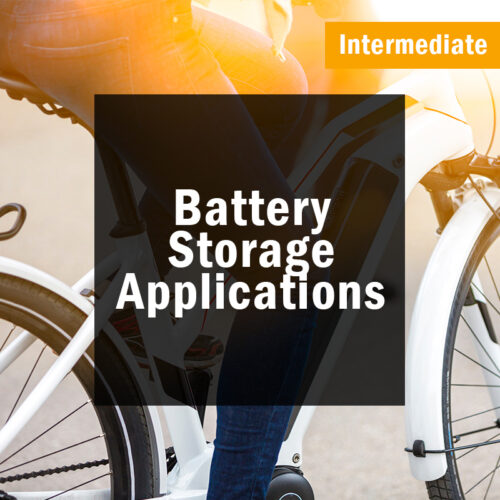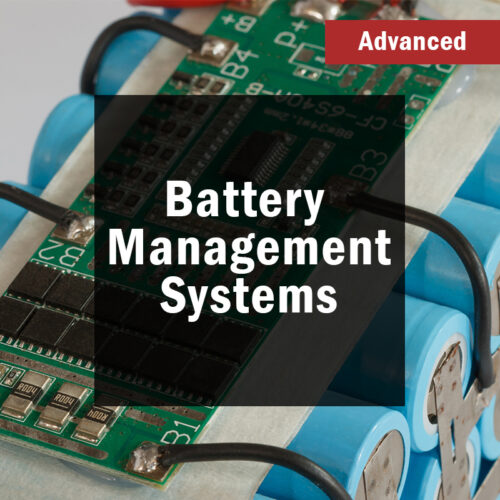-
 This certification provides a rock-solid overview and understanding of the battery value chain, production processes, and end-of-life scenarios. Specifically, participants will explore the battery raw materials, understand how a Li-ion battery is produced, evaluate how to regain value from end-of-life batteries learning about state-of-the-art scenarios related to batteries end-of-life in particular re-use and recycling.
This certification provides a rock-solid overview and understanding of the battery value chain, production processes, and end-of-life scenarios. Specifically, participants will explore the battery raw materials, understand how a Li-ion battery is produced, evaluate how to regain value from end-of-life batteries learning about state-of-the-art scenarios related to batteries end-of-life in particular re-use and recycling. -
 This certificate explores the potential role and position of battery storage in the future European electricity industry, by shedding light on different applications of battery storage. For each of the four main applications of grid-scale, behind-the-meter, off-grid and mobility, you will learn about the most promising services of battery storage in the electricity system that has a large share of renewable electricity. You will discover why the development and deployment of battery storage has been slow, despite it being a promising solution, but also why the time has come for the electricity industry to make smart battery choices.
This certificate explores the potential role and position of battery storage in the future European electricity industry, by shedding light on different applications of battery storage. For each of the four main applications of grid-scale, behind-the-meter, off-grid and mobility, you will learn about the most promising services of battery storage in the electricity system that has a large share of renewable electricity. You will discover why the development and deployment of battery storage has been slow, despite it being a promising solution, but also why the time has come for the electricity industry to make smart battery choices. -
 The Battery Storage Basics certificate empowers learners with the basic knowledge and insights to build up their understanding of the importance and working principles of battery technologies. They will learn how batteries fit in the energy context, what is their historical importance, and explore different perspectives and classification of current battery technologies. Learners will then look into the core components and parameters of batteries and battery systems. Lastly, they will be guided through different battery technologies that are currently in use.
The Battery Storage Basics certificate empowers learners with the basic knowledge and insights to build up their understanding of the importance and working principles of battery technologies. They will learn how batteries fit in the energy context, what is their historical importance, and explore different perspectives and classification of current battery technologies. Learners will then look into the core components and parameters of batteries and battery systems. Lastly, they will be guided through different battery technologies that are currently in use. -
 This certificate focuses on real-life applications that will contribute to achieving in practice a low-emission, sustainable future. It gives a deep understanding of battery storage applications across the electric grid, behind-the-meter, storage for electrical mobility, and for industrial applications.
This certificate focuses on real-life applications that will contribute to achieving in practice a low-emission, sustainable future. It gives a deep understanding of battery storage applications across the electric grid, behind-the-meter, storage for electrical mobility, and for industrial applications. -
 This certificate will allow participants to dive deep into power conversion systems that connect storage systems to smart grids and consumers, learning how to choose the right type of converter while assessing overall system performance with respect to energy efficiency. It also introduces battery management systems and the critical parameters that we can control, the use of battery testing and operation simulation in order to predict real-world in-service behavior.
This certificate will allow participants to dive deep into power conversion systems that connect storage systems to smart grids and consumers, learning how to choose the right type of converter while assessing overall system performance with respect to energy efficiency. It also introduces battery management systems and the critical parameters that we can control, the use of battery testing and operation simulation in order to predict real-world in-service behavior.



